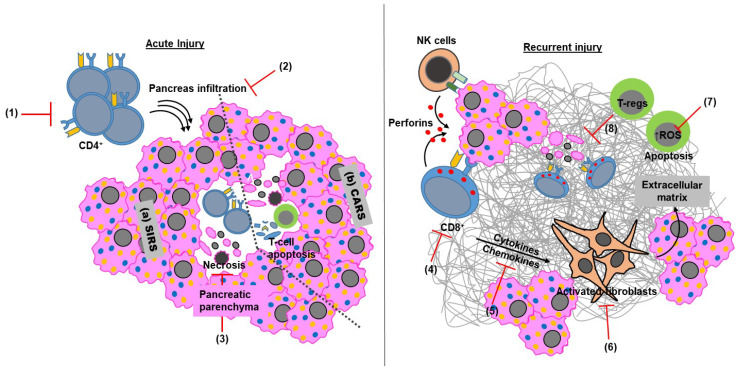Figure 3.
Targeting adaptive immune mediators during acute and chronic pancreatitis. Genetic ablation using athymic or T-lymphocyte-deficient mice (1) or reduced infiltration (2) of T-lymphocytes decreases the severity of acute pancreatitis. Therefore, targeting infiltrating T-lymphocytes (2) and tissue necrosis (3) is a promising strategy to reduce the acute phase responses like (a) SIRS or (b) CARS in AP. Recurrent pancreatic injury causes irreversible damage, which is effectively curtailed by targeting cytotoxic mediators (4 and 5). Targeting the inflammatory stimulus (6) by these adaptive and innate immune cells reduces pancreatic stellate cell activation (7), leading to the maintenance of pancreatic parenchyma and decreased ECM deposition. Reducing the T-reg apoptosis (8) by targeting intracellular ROS is also a promising strategy in reducing acinar cell apoptosis (9), inflammation and the maintenance of pancreatic parenchyma. SIRS; systemic immunological response syndrome. CARS; compensatory anti-inflammatory response syndrome.

